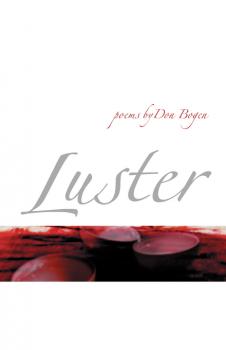Don Bogen
Список книг автора Don BogenThe Known World
<P>Turning bare description into a luxuriance, The Known World looks at the complex relationship of past and present, creating energetic juxtaposition between different historic periods to envision life at the end of our own century. Don Bogen calls the work an archeology, and uses details f life in past eras as a way of penetrating the surfaces of history. In his account, everything known is both encumbered with and defined by the past. Short poems in this collection cohere around the long title poem, which explores the nineteenth century through more than thirty sections in different voices and styles, including lists, mock letters, brief narratives, and lyric passages. The result is lively and illuminating.</P>
Immediate Song
From one of our finest poets comes a collection about time—about memory, remembrance, and how the past makes itself manifest in the world.<br><br> Called “the poet of things” by Richard Howard, Don Bogen understands the ways objects hold history, even if they’ve grown obsolescent, even when they’ve been forgotten. So objects—rendered in cinematic detail—fill these poems. A desk, a mailbox, a house delivering its own autobiography. Hospitals: the patients who have passed through, the buildings that have crumbled. And, in a longer view, the people who survive in what they left behind: Thom Gunn, Charles Dickens, and the pre-Columbian architects who designed the great earthworks of Ohio two thousand years ago.<br><br> Songs, ephemeral by nature but infinitely repeatable, run throughout the collection. “What did they tell me, all those years?” Bogen writes. <i>Immediate Song</i> offers us a retrospective glance that is at once contemplative and joyous, carefully shaped but flush with sensuous observation: a paean to what is both universal and fleeting.


